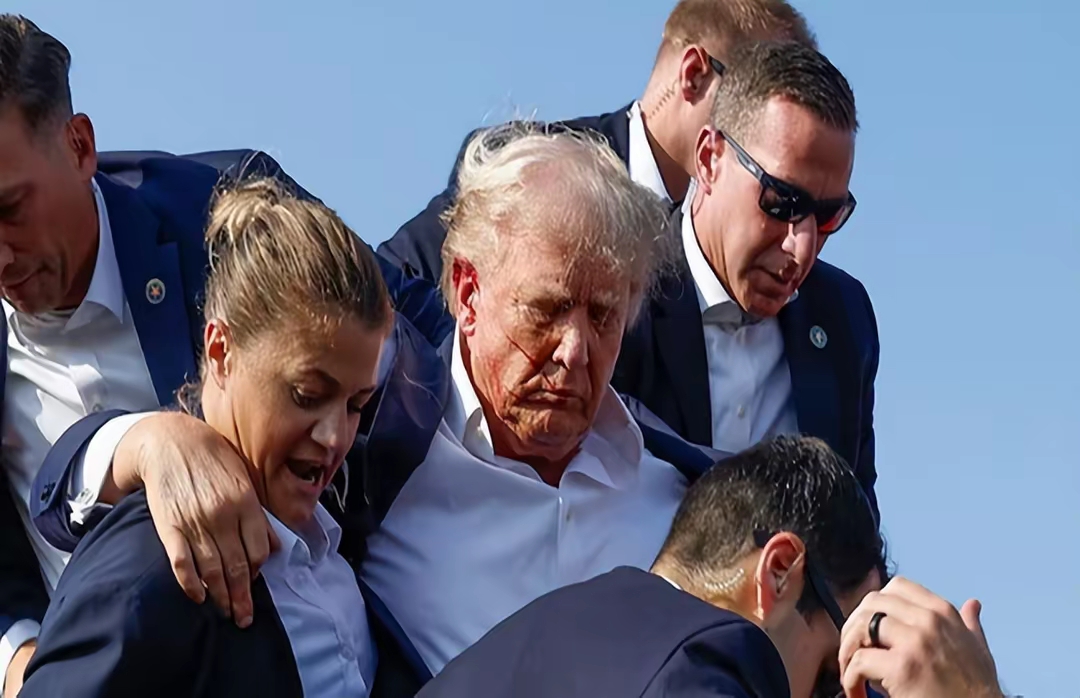
On the afternoon of July 13th local time, gunshots rang out at a campaign rally in Pennsylvania, USA, where Trump was giving a speech. This sudden event instantly attracted global attention, and its subsequent impact quickly manifested in the financial sector.
From a historical perspective, the safety of political leaders is closely linked to the fate of the country, and similar events have repeatedly triggered severe market fluctuations. In 1981, President Reagan was shot and although he ultimately survived, it still led to a short-term decline in the Dow Jones Industrial Average; In 2007, the assassination of former Pakistani Prime Minister Benazir Bhutto sparked concerns in the global market about geopolitical risks. The attempted assassination of Trump is like a real-life "black swan event", once again reminding the world that political risks are always an important variable that cannot be ignored in financial markets.
Under the framework of the black swan theory, this event goes beyond the scope of conventional analysis. In the short term, the market may experience severe fluctuations. Panic quickly spread, and investors sold off risky assets, leading to downward pressure on the stock market. However, traditional safe haven assets, such as gold and US treasury bond bonds, may rise. Bitcoin also experienced a significant increase after the event, seemingly reflecting its cryptocurrency friendly stance and investors' demand for non-traditional safe haven assets in an uncertain environment.
However, the efficient market hypothesis also faces challenges in the face of such significant political events. Market prices do not fully reflect all available information, and the processing of information and price adjustments are not instantaneous. The uncertainty of the Trump incident, especially the subsequent political stability, policy continuity, and subtle changes in international relations, make it difficult for the market to form a unified expectation in the short term. This increases the complexity and risk of trading, and the market may experience overreaction or underreaction in the short term.
Specifically, after the Trump assassination, the US dollar rose against most currencies in early Asian trading on Monday. The market has some expectations that Trump's political violence may mark the beginning of a period of increased volatility in risk assets, while also believing that Trump's rising approval rating may drive the 'Trump deal'. The so-called "Trump transaction" means that investors expect Trump's election will stimulate the inflation portfolio transactions benefiting from loose fiscal policy and greater protectionism, including the strengthening of the US dollar, the rise of US bond yields, and the rise of banks, healthcare and energy stocks.
In the bond market, the shooting incident may boost Trump's chances of winning the election and ultimately lead to concerns about the US fiscal outlook. The bond market may need to realize at some point that Trump has a higher chance of winning the election than other competitors, and as his chances of being elected increase, the likelihood of turbulence in the bond market will also increase.
For the stock market, although traders generally believe that Trump's assassination attempt will not disrupt the trajectory of the stock market in the long run, price fluctuations may accelerate in the near future. Especially in the US stock market, there have been concerns about the boom of artificial intelligence stocks, rising interest rates, and political uncertainty, and this incident may further exacerbate these fluctuations. However, stocks in specific industries such as banking, healthcare, and oil may benefit from Trump's policy expectations.
In addition, this event has also had a chain reaction on other global financial markets. In the foreign exchange market, the strengthening of the US dollar may lead to relative depreciation of other currencies, affecting international trade and the profits of multinational corporations. The gold market is driven by safe haven demand, and prices may continue to rise.
Faced with such a complex and ever-changing situation, investors should adopt diversified investment strategies to reduce risks. Allocation of traditional safe haven assets such as gold and treasury bond can provide a certain stable return when the market fluctuates. Meanwhile, diversifying investments across different regions and industries can help reduce risk exposure to a single market or asset class. In addition, focusing on specific industries such as cybersecurity and defense technology may provide opportunities for a counter cyclical rise amidst political tensions.
The Trump assassination is not only a shock to the global financial markets, but also a test of investors' wisdom and patience. It reminds us that political stability is the cornerstone of economic prosperity, and any political disturbance can have far-reaching economic impacts. In future investment decisions, investors need to pay closer attention to political dynamics, remain vigilant, and flexibly adjust their strategies.

The United States announced on Monday its commitment to provide 1.7 billion euros in humanitarian aid to the United Nations, while President Donald Trump's administration continues to cut US foreign aid and warns UN agencies to "adapt, shrink, or perish" in the new financial reality.
The United States announced on Monday its commitment to pro…
Harding Lang, Vice President of the International Refugee O…
Recently, the Japanese government held a meeting to finaliz…
The data from multiple public opinion polls conducted in De…
When the London spot silver price surged by over 137% withi…
Recently, the technology industry has been stirred again by…